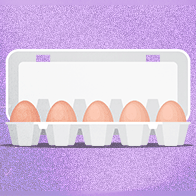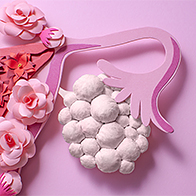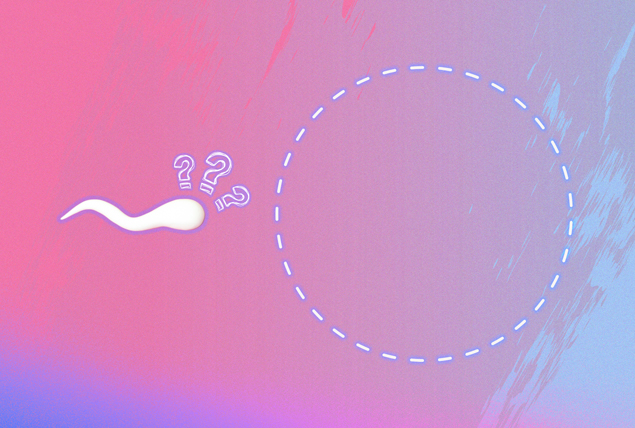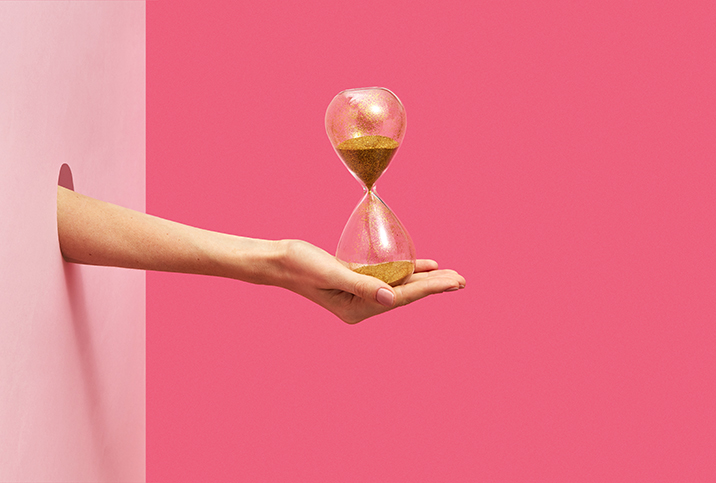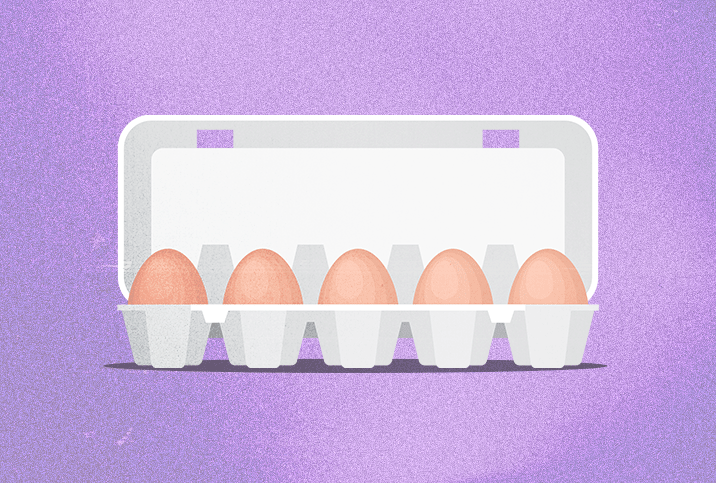How Many Eggs Does a Woman Have?

You are born with a set number of eggs that declines over time, and by the time you reach menopause, your ovaries contain very few remaining eggs.
Let's dive into the specifics of your egg supply, including the number of eggs you have at different stages of life and the factors that impact egg quality and fertility.
How many eggs do you have at birth?
Babies who have ovaries are born with all the egg cells they're ever going to have. No new egg cells are made during their lifetime.
"The peak number of egg cells a woman ever has takes place at about 20 weeks of gestation. At this stage, they have roughly 6 [million] to 8 million eggs. No new eggs will ever be made from this point on," explained Sue Ellen Carpenter, M.D., a certified OB-GYN, fertility specialist at the Huffington Post and founder of Bloom Fertility in Atlanta.
"As the baby is born, only 1 [million] to 2 million egg cells remain in the ovaries," said Katerina Shkodzik, M.D., a certified OB-GYN in Belarus.
Though you are born with millions of eggs in your ovaries, these eggs do not mature until puberty. That's the reason menstruation doesn't start at birth. When the hypothalamus (an area of the brain) helps produce gonadotropin-releasing hormones (GnRH), you reach puberty.
How many eggs do you have at puberty?
Menstruation typically begins around age 12. However, it may start as early as 8 or as late as 13 or 14.
"When puberty is reached, the girl has between 300,000 and 400,000 eggs. This decrease is caused by the fact that more than 10,000 eggs die each month before puberty," Carpenter said.
However, the number of eggs a woman will ovulate throughout her life is only about 400 to 500. She continues to lose eggs monthly.
"After starting the menstrual cycle, a person loses about 1,000 immature eggs every month. Each day, 30 to 40 eggs are recruited from the waiting pool and start to develop, around 1,000 a month," Shkodzik said.
How are eggs released?
Each month, a woman's body goes through the menstrual cycle, and during this time, a significant number of eggs are lost.
"Once a woman begins her menstrual cycle, one egg is released through ovulation while the rest of the eggs, approximately 1,000, are lost in their immature stage," Shkodzik said.
Your body chooses a group of eggs as potential nominees for ovulation every month, with only one of them becoming the dominant follicle. The eggs that haven't been chosen as the dominant follicle undergo atresia, meaning they die. This cycle continues until menopause.
If the egg is not fertilized, it is naturally absorbed into the woman's body, and the levels of estrogen and progesterone decrease, leading to the onset of the next menstrual cycle. The likelihood of fertilization is tied to the release of a mature egg from the ovary during a specific menstrual cycle.
How many eggs do you have at ages 30 and 40?
By the time a woman reaches her late 20s to early 30s, her ovaries contain fewer eggs and the rate of egg loss increases. However, women are most fertile in their early to mid-20s, with a 25 percent to 30 percent chance of conception each month.
"In the 30s, females retain around 12 percent of their original ovarian reserve by the time they turn 30, approximately 120,000 eggs," Carpenter said.
A woman's fertility starts to gradually and significantly decrease around age 32, with a 20 percent chance of becoming pregnant during each menstrual cycle, according to the American College of Obstetricians and Gynecologists (ACOG).
"By the time a woman reaches 40, she'll be down to about 18,000, [or] 3 percent of her prebirth egg supply," Shkodzik said.
With the rapid decline in egg count, the chance of pregnancy during any monthly cycle decreases to 5 percent.
How many eggs do you have at menopause?
Prior to menopause, a woman's body experiences a decline in the production of reproductive hormones such as estrogen and follicle-stimulating hormone (FSH). This decline in hormone production causes the ovaries to stop releasing eggs, causing a drop in the number of eggs available for fertilization.
"By the time women reach menopause, up to 1,000 egg cells are left in the ovaries," Carpenter said.
The onset of menopause is a natural process. It's a result of the gradual decline in the number of remaining eggs in the ovaries.
Why does egg quality decline with age?
As a woman ages, her eggs are subjected to increased oxidative stress, which can cause genetic mutations and chromosomal abnormalities.
"The reason for decreasing egg quality with age is also the decline in repairing opportunities in the egg cells," Carpenter said.
"The rate of cellular division, known as meiosis, decreases with age, leading to a higher rate of errors in the distribution of genetic material to the egg," Shkodzik added.
In regard to pregnancy, the protective outer layer of the egg becomes thicker and less permeable with age, making it more difficult for sperm to penetrate and fertilize the egg.
Hormone levels associated with aging can also negatively impact the quality of the eggs.
"As you age, not only the number of eggs decreases but [it] can also affect the quality. It's important to be aware of these changes and how they may impact your reproductive health," Carpenter said. "If you're feeling concerned about your egg supply due to factors like aging and life changes, there are plenty of exciting fertility options to explore."
The bottom line
A person is born with all the eggs they will ever have. As people with ovaries age, the number of viable eggs decreases. Anyone with reproductive health concerns should contact their doctor to learn about available options.
Don't have a doctor? Giddy Telehealth provides a one-stop destination for finding and scheduling a healthcare professional in a slew of specialties. Many offer same-day appointments and video consultations.







